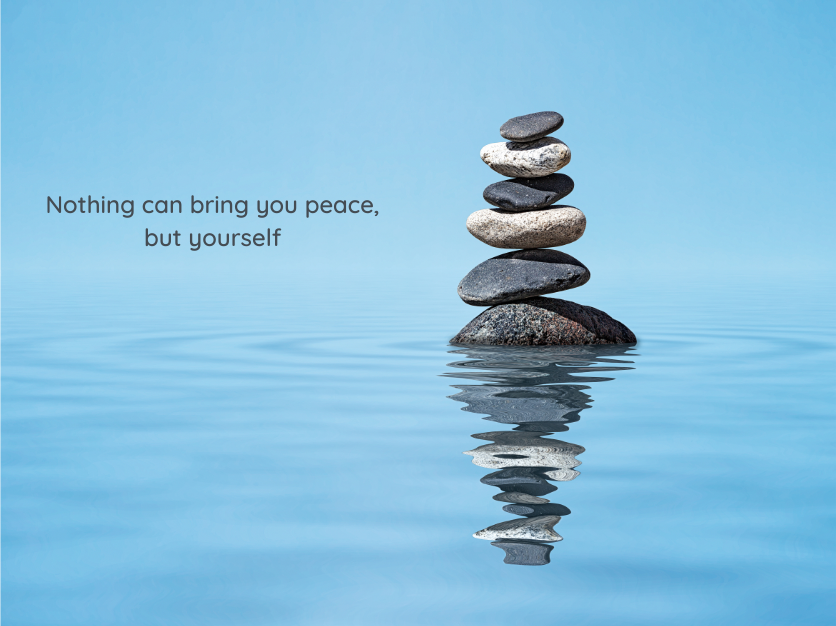
The importance of doing nothing
In today’s busy, frenetic, life most of us seem to rush from place to place, problem to problem, opportunity to opportunity, crisis to crisis. If we’re lucky we can sometimes insert something positive into the middle of each journey – a pause for coffee, a nice meal out, a break with friends. But we rarely ever take time out. To stop. To do nothing.
We’re so busy solving the problems (even the problems that don’t really exist!) that we don’t try to take stock of things. In a previous article, I have written comparing the way we ‘grow’ to the way that so many computer systems ‘grow’ – things just get added on, bolted onto other items that had been bolted on…
What you need to do is simply stop. Pause in the daily routine and just consider what it is that you are doing. Why you are doing it. When – how and even if – you should be doing it.
Blaise Pascal, the seventeenth-century French philosopher, is purported to have said: “…humanity's problems stem from man's inability to sit quietly in a room alone." We’re not going down the full meditation route here, but rather simply ‘taking time out’.
One of the greatest benefits my clients get from me is not (though I hate to say it!) actually from me. It’s from themselves. It’s being able to take advantage of the headspace I make for them in their busy day. The fact that we have got an hour or so – maybe a bit more, maybe a bit less – simply to take stock of what, why, when and how they are doing things.
One really simple example was with a client who had an open-plan environment, into which five or so desks had been crammed. I asked him why he had decided to organise the office like that (no hidden agenda, there was neither endorsement nor criticism of how he was operating, although I could see that maybe individuals’ workspaces were a little tight and noisy). He sat back in his chair, took another swig of coffee, and I could see the thought processes starting. “D’you know,” he said, “I really don’t know. We had this large office when it was just me and my partner. It worked so well, we could both hear and see what the other was doing, and offer help as required. Then we took on a new person, so we added a desk. Then another person, six months or so later. And a month ago someone else joined us temporarily – but it does get a bit noisy, and it can be hard to have a phone conversation if three others are happening at the same time.” He spent a day or so thinking about this, and a month later when I was back I could see he had moved his own desk into a separate office – which gave him privacy for any confidential issues or phone calls, and also freed up considerable space in the main office: other staff had more space, and there was room for some simple movable shelving to act as room dividers and help deaden sound (while also creating more storage space.) But this massive change – and significant improvement - to the work environment came about just from ‘doing nothing’.
As with all counselling/mentoring/coaching issues, I am able to use my wide experience to help my clients think for themselves on the widest range of topics. I don’t (well, very rarely!) advise as to the ‘best’ route – I simply help the client think their way through the various options, consider the various advantages or disadvantages that I might offer as potential consequences of their action or inaction. Above all, it is the ‘nothing’ that clients benefit from – no phones ringing, no memos to write. No knocks on the door, no reports to read or draft. And that ‘emptiness’ gets filled with a slight stream of consciousness about the day’s events and actions. And that freedom to think is one of the greatest gifts I can give to my clients. So when someone says to you “Nothing is more important than…” you can interrupt and tell them how right they are. ‘Nothing’ is more important.
Conventional time management courses all indicate how one should prioritise important and urgent tasks ahead of tasks which might be important but not so urgent, etc. But very few of these courses ever tell you that, sometimes, doing nothing is the most important action (inaction?) of all.
If I’ve intrigued you – and assuaged your fear of doing nothing! – and you feel it would be worthwhile having a brief, no-cost, no-obligation chat about any of the concepts here and discuss how they could generate value for you and your business, contact me on sean@refinity.co.uk or call 01522 700600, or check out the website for some further examples of how Refinity can provide benefits for you.